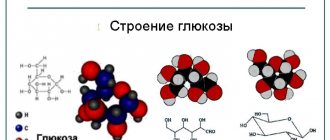Why take L-tryptophan?
L-tryptophan plays a crucial role in improving mood. It is the body that converts this amino acid into serotonin. It is a neurotransmitter that is known as the “happy hormone.” Tryptophan deficiency can lead to erratic mood swings, severe anxiety disorders, and even depression.
If there is a lack of L-tryptophan in the body, it is taken as a dietary supplement. Many people do not get enough of this amino acid from regular foods.
Symptoms of tryptophan deficiency include:
- depression;
- mood changes;
- sleep disturbance;
- sleep apnea;
- anxiety;
- premenstrual syndrome.
A 2010 study examined the effects of L-tryptophan on the incidence of steatohepatitis , a form of liver disease. The study was based on the formation of oxidative stress and inflammatory reactions. After just four weeks, study participants who took the special supplement every day had improvements in triglyceride levels and available inflammatory cytokines.
In addition, this essential amino acid has a positive effect on irritable bowel syndrome (IBS). The less L-tryptophan in the body, the more severe the symptoms of this condition. Therefore, L-tryptophan is useful in reducing the severity of irritable bowel syndrome.
Is L-tryptophan safe?
Based on data from the FDA (Food and Drug Administration - an agency of the US Department of Health and Human Services), consuming this amino acid as a dietary supplement is absolutely safe.
In 1989, a Japanese tryptophan manufacturer used an unsafe process to purify it, increasing contamination levels. The contaminated batch caused a serious condition known as eosinophilia-myalgia syndrome (EMS). This is a rare autoimmune disease that causes fever, numbness, and a rash. In severe cases it can lead to death.
This has led to FDA restrictions on the import of dietary supplements. In 2001, the FDA relaxed its restrictions because unsafe processes used in the past were identified and stopped. Now, this amino acid is produced in a completely safe way. There is absolutely no harm in consuming it if you follow the instructions on the label.
Tryptophan or 5-HTP? What's better?
Our bodies naturally convert tryptophan into melatonin and serotonin. Part of the process involves converting it first to 5-hydroxytryptophan , or 5-HTP .
5-HTP is produced in the body, but when used as a supplement, it is obtained from the African shrub Griffonia Simplicifolia. Low levels of serotonin are associated with sleep disturbances, depression, weight gain, and increased anxiety.
5-Hydroxytryptophan (5-HTP) is a byproduct of the amino acid L-tryptophan and a neurotransmitter precursor, used to increase serotonin production, reduce stress, and suppress appetite. Because of this process, many people have a dilemma about which supplement is better to choose.
If taking tryptophan does not have a positive effect on your body, consider using a 5-HTP supplement. 5-HTP acts faster than the amino acid l-tryptophan.
Which is better L-tryptophan or 5-HTP
Tryptophan is also sold as what is called 5-hydroxytryptophan, 5-HTP. Hydroxytryptophan is an intermediate metabolite between the amino acid L-tryptophan and serotonin, usually obtained from the seeds of the African griffonia plant. 5-HTP is obtained directly from serotonin in a laboratory setting and works faster and more effectively. But unlike L-tryptophan, 5-HTP is not used to form vitamin B3 niacin, but is used solely to be converted into serotonin.
Serotonin synthesis from 5-HTP occurs in enterochromaffin cells and mast cells of the intestinal mucosa. However, serotonin cannot cross the blood-brain barrier, so additional serotonin synthesis also occurs in the central nervous system and brain.
To summarize, 5-HTP is the next step in the chain, closer to serotonin and therefore melatonin. In addition, it penetrates the blood-brain barrier of the brain more easily and quickly, and the desired effect is achieved more easily and in a slightly shorter period of time. If we have sleep problems and stress, then it is better to take 5-HTP.
Tryptophan has only one noticeable advantage - vitamin B3 can be synthesized in the intestine by bacterial flora from tryptophan supplied with food. But the efficiency of the process is low, from 60 mg of tryptophan 1 mg of nicotinic acid is formed, and only with the participation of pyridoxine (vitamin B6) and riboflavin (vitamin B2).
L-tryptophan or melatonin?
New results show that tryptophan improves sleep quality. It keeps serotonin levels high throughout the day. As a result, sufficient melatonin can be produced from serotonin at night. This hormone significantly affects the sleep cycle and is essential for restful sleep. Therefore, low concentrations of L-tryptophan can cause insomnia and significantly worsen overall health.
Because our bodies use this amino acid to produce melatonin , many people report similar effects from both supplements. If the main cause is a lack of this amino acid, and not another problem related to the production of melatonin, this dietary supplement is suitable for you. Before using melatonin, consult your doctor.
Side effects of L-tryptophan:
- increased sweating;
- strong heartbeat;
- nausea;
- muscle tension;
- visual impairment;
- headache;
- drowsiness or fatigue;
- dizziness.
5-Hydroxytryptophan (5-HTP) is an amino acid precursor serotonin with antidepressant benefits, reducing restlessness, anxiety, improving sleep and aiding in weight loss, but with some caveats. Read this post to learn more about the proven health benefits and risks of taking 5-HTP.
Which is better 5-HTP or tryptophan
Tryptophan is also sold as what is called 5-hydroxytryptophan, 5-HTP. Hydroxytryptophan is an intermediate metabolite between the amino acid L-tryptophan and serotonin, usually obtained from the seeds of the African griffonia plant. 5-HTP is obtained directly from serotonin in a laboratory setting and works faster and more effectively. But unlike L-tryptophan, 5-HTP is not used to form vitamin B3 niacin, but is used solely to be converted into serotonin.
Serotonin synthesis from 5-HTP occurs in enterochromaffin cells and mast cells of the intestinal mucosa. However, serotonin cannot cross the blood-brain barrier, so additional serotonin synthesis also occurs in the central nervous system and brain.
To summarize, 5-HTP is the next step in the chain, closer to serotonin and therefore melatonin. In addition, it penetrates the blood-brain barrier of the brain more easily and quickly, and the desired effect is achieved more easily and in a slightly shorter period of time. If we have sleep problems and stress, then it is better to take 5-HTP.
Tryptophan has only one noticeable advantage - vitamin B3 can be synthesized in the intestine by bacterial flora from tryptophan supplied with food. But the efficiency of the process is low, from 60 mg of tryptophan 1 mg of nicotinic acid is formed, and only with the participation of pyridoxine (vitamin B6) and riboflavin (vitamin B2).
What is 5-HTP?
5-hydroxytryptophan (5-HTP) is an amino acid that serves as a precursor for the biosynthesis of serotonin and melatonin in the brain from the amino acid tryptophan. Serotonin plays an important role in the body, especially as a neurotransmitter for transmitting signals between neurons in the nervous system.
Depression is now believed to be caused (at least in part) by low levels of serotonin in the brain, but what exactly causes depression is still not fully understood [1, 2].
To make the supplement, 5-HTP is extracted from the seeds of the Griffonia simplicifolia plant, a woody climbing shrub native to West and Central Africa in the legume family.
What is 5 htp?
5 htp hydroxytryptophan is an amino acid that occupies an intermediate position in tryptophan metabolism.
5 hTP is formed from tryptophan under the action of the enzyme phenylalanine hydroxylase. After this, serotonin is synthesized from 5 htp hydroxytryptophan with the help of the enzyme decarboxylase of aromatic L-amino acids and vitamin B6, which is further processed into melatonin - the “sleep hormone” that regulates human physiological activity in the daily cycle. In nature, quite a lot of this substance is contained in the seeds of Griffonia Simplicifolia, the extract of which is offered as a 5 htp supplement.
What are the health benefits of 5-HTP?
Fights depression
The antidepressant effect of 5-HTP is comparable to that of some antidepressants [6].
Combination treatment with 5-HTP and SSRIs (selective serotonin reuptake inhibitors) appears to have a strong synergistic effect on serotonin levels in humans and rats. Therefore, some doctors recommend using slow-release 5-HTP in combination with an SSRI. However, additional clinical trials are needed to demonstrate the safety and effectiveness of this approach. Combinations of 5-HTP and medications should only be used under medical supervision [7, 8, 9].
In a small clinical study of 52 healthy men, 5-HTP and SSRIs increased serotonin levels by 35% and 100%, respectively. However, together they increased serotonin by 500% [8].
Small clinical studies have shown that 5-HTP relieves depression better than placebo. However, larger and higher quality studies are needed to confirm the safety and effectiveness of 5-HTP [5].
Functions of serotonin
Serotonin affects SO MANY functions in the body.
- As I said above, serotonin contributes to QUALITATIVE IMPROVEMENT OF MOOD! It’s not for nothing that it is called the “hormone of joy” or “hormone of happiness.” One of the most important functions, I think. In many countries it is used as an antidepressant.
- Improves sleep quality . This is a very important function for both athletes and ordinary people. You sleep much more soundly, get enough sleep in less time, and begin to see beautiful dreams.
- For example, when the level of serotonin decreases, the sensitivity of the body's pain system increases , i.e. even the slightest irritation can cause pain. For us, those who play sports, this situation is not very suitable, because... We already constantly struggle with muscle pain, pain from restrictions, etc. We don't need any additional pain.
- Serotonin, by stimulating certain serotonin receptors in the liver, stimulates increased synthesis of blood clotting factors .
- Serotonin is involved in the process of contractility of the uterus and fallopian tubes in women, as well as in the coordination of childbirth.
- Serotonin is involved in the ovulation process.
- Takes part in the stimulation of the genital organs (which entails improved erection and blood flow to the female genital organs).
All of these above functions can be attributed to this supplement, because... 5- HTP is a SEROTONIN PRECURSOR !
The scheme is extremely simple:
TRYPTOPHAN => 5- HTP => SEROTONIN (good mood) + MELATONIN (good sleep)
5-HTP Supplements
Dosage
200 mg is safe and beneficial for increasing serotonin levels in the brain, although some studies have shown safety and effectiveness when doses are titrated up to 3 g per day [5]. Higher doses increase the likelihood of side effects.
In obesity treatment and weight loss studies, up to 900 mg or 8 mg/kg body weight of 5-HTP was safely used over 2 weeks, although side effects of nausea and vomiting were reported [16].
Absorption and excretion of 5-HTP
5-HTP is rapidly absorbed in the upper intestine, with 50% of 5-HTP absorbed after 1.5 hours. Elimination of 5-HTP also occurs rapidly [30].
Due to the rapid pharmacokinetics of 5-HTP, slow-release 5-HTP may be more beneficial in maintaining serotonin levels in the brain [9].
About 70% of ingested 5-HTP enters the bloodstream [31].
Patients who take 5-hydroxytryptophan have significantly reduced P450 expression levels [32].
Risks and Side Effects of Using 5-HTP
May cause nausea and vomiting
Because serotonin in the digestive system controls intestinal motility, all interventions that increase serotonin levels, including 5-HTP supplementation and SSRI antidepressants, can cause nausea, vomiting, and diarrhea.
The most common side effects of 5-HTP in all human clinical trials are nausea and vomiting, as the rapid release of serotonin throughout the body is not well tolerated (33, 34).
Slow-release 5-HTP may be better tolerated and less likely to cause side effects [9].
May deplete dopamine, norepinephrine and epinephrine
When there is too much 5-HTP, it reduces dopamine synthesis by suppressing the AAAD enzyme through competitive inhibition, resulting in the depletion of dopamine, norepinephrine and other neurotransmitters [35].
Long-term use of 5-HTP can cause an imbalance of these neurotransmitters . It is therefore recommended that 5-HTP supplementation be supervised by qualified clinicians and balanced with neurotransmitter precursors [35].
As the dose of 5-HTP increases, the activity of the MAO gene increases. When this happens, MAO can break down dopamine and cause it to decrease [35].
Serotonin syndrome
5-HTP is freely converted to serotonin without biochemical feedback inhibition. When infinitely large amounts of 5-HTP are administered, it is theoretically possible to achieve extremely high levels of serotonin. One limiting factor is the presence of the enzyme aromatic amino acid decarboxylase (AAAD), which converts 5-HTP to serotonin [35].
Serotonin syndrome explains a range of symptoms caused by very high levels of serotonin, which can be life-threatening [36].
Mild symptoms of overdose include shaking, sweating, tremors, restless limbs, and headache. Severe symptoms include hypertension, fever, mania, hallucinations and ataxia [37].
Serotonin syndrome is almost exclusively caused by combinations of SSRIs and MAOIs causing excessive levels of serotonin in the brain [9].
Eosinophilia-myalgia syndrome
Eosinophilia-myalgia syndrome is a disease that causes severe, disabling, chronic muscle pain, skin symptoms, and other neurotoxic reactions that has affected more than 1,500 people and resulted in at least 38 deaths. The FDA has estimated that there are 10 cases of eosinophilia-myalgia syndrome associated with 5-HTP worldwide [39].
It seems more likely that this is caused by bacterial contamination in the supplement than by tryptophan or 5-HTP itself. Since 1990, there have been no new cases of eosinophilia-myalgia syndrome associated with 5-HTP supplementation [40].
Other side effects
Other rare side effects of 5-HTP include hypomania, lightheadedness, headache, and increased heart rate [41, 38].











